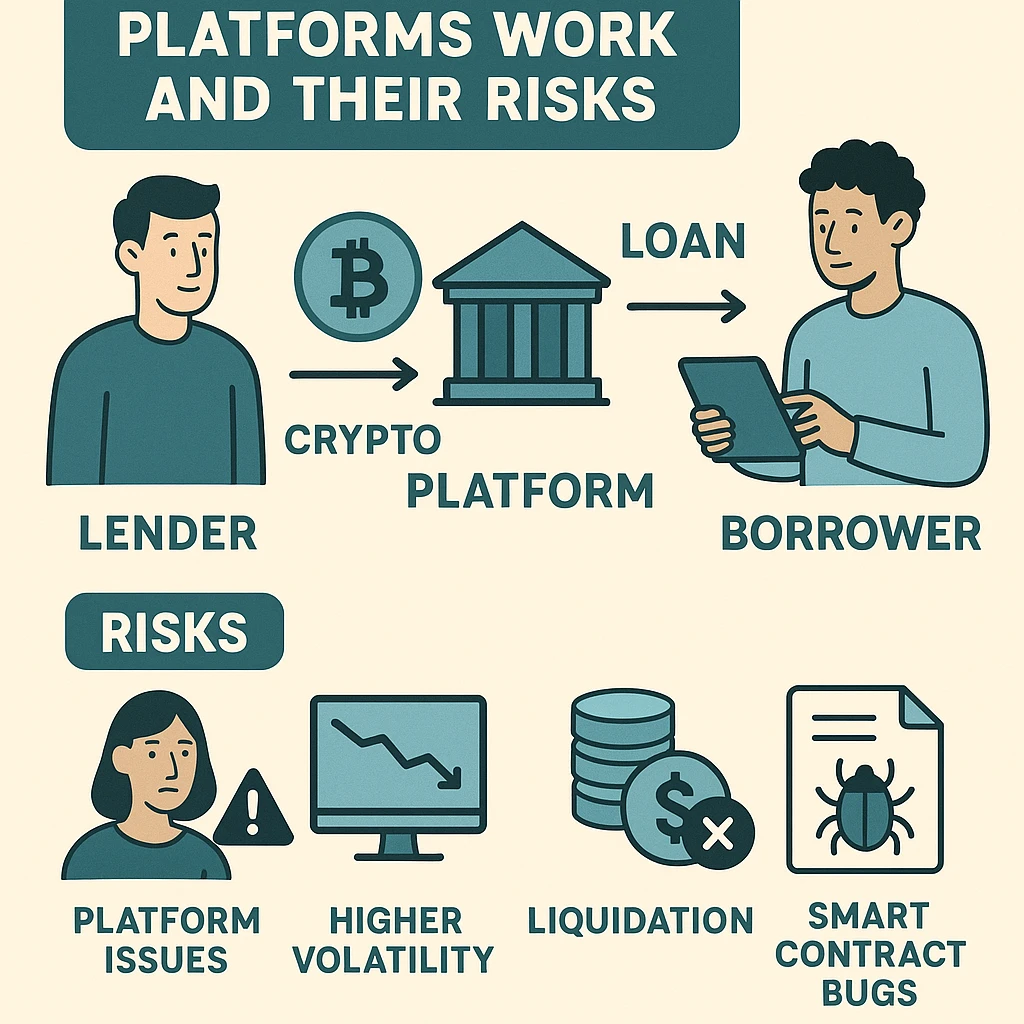Introduction
The startup ecosystem has seen a radical change in the way companies obtain capital in recent years. Venture capital (VC), in particular, has long been the main source of investment for digital innovation and business expansion. But more and more firms are choosing cryptocurrency crowdfunding over venture capital.
This movement has its roots in the changing digital financial landscape, decentralization, and the growing acceptance of blockchain-based solutions; it is not only a passing fad fueled by hype. An alluring substitute that gives founders more authority and provides access to a worldwide investor base is cryptocurrency crowdfunding, which is made possible by Initial Coin Offerings (ICOs), Security Token Offerings (STOs), Initial DEX Offerings (IDOs), and other decentralized funding platforms.
This blog will examine the causes of this change, contrast cryptocurrency crowdfunding with conventional venture financing, provide real-world examples, and weigh the advantages and disadvantages of each.
The Traditional Venture Capital Model
To understand why startups are moving away from VC, it’s important to understand how venture capital traditionally works.
How Venture Capital Works
Private equity money given to high-potential, early-stage enterprises is known as venture capital. VCs get an equity stake in the business in return for their funding. This model frequently consists of:
-
Multiple rounds of funding (Seed, Series A, B, C, etc.)
-
Due diligence and rigorous vetting
-
Ownership dilution for founders
-
Board seats and operational influence from investors
The Pros of Venture Capital:
-
Significant capital
-
Access to networks, mentorship, and strategic guidance
-
Increased legitimacy and credibility
The Cons of Venture Capital:
-
Founders lose control and ownership
-
High barriers to entry
-
Slow decision-making processes
-
Favoritism toward “hot” industries or geographies
For many startups—especially those in developing markets or working on niche technologies—venture capital is not accessible or sustainable.
What Is Crypto Crowdfunding?
By issuing digital tokens, cryptocurrency crowdfunding leverages blockchain technology to gather money from a dispersed group of investors. These tokens could represent stock, be useful in the startup's ecosystem, or have other uses.
Popular Types of Crypto Crowdfunding:
-
ICO (Initial Coin Offering): To raise money, startups sell utility tokens.
-
STO (Security Token Offering): Tokens are regulated and represent actual assets.
-
IDO (Initial DEX Offering): On decentralized exchanges, tokens are introduced immediately.
-
IEO (Initial Exchange Offering): centrally located cryptocurrency exchanges.
-
NFT Crowdfunding: To finance technological or creative endeavors, unique digital assets are auctioned.
With these models, investors typically don’t need to be accredited, and global participation is enabled through decentralized platforms.
Why Startups Prefer Crypto Crowdfunding
1. Global and Inclusive Funding
There are no geographical restrictions on cryptocurrency crowdfunding. Funding rounds are open to anyone with cryptocurrencies and internet connection. This significantly expands the range of possible investors and supporters.
Crypto crowdfunding provides access to millions of potential supporters worldwide, in contrast to traditional venture capital, where businesses pitch to a small audience.
2. No Equity Dilution
Startups are frequently able to raise capital without sacrificing equity. Instead of granting ownership, utility tokens give consumers access to goods or services. This enables the founders to obtain substantial funding while maintaining complete control.
3. Faster Access to Capital
Venture capital investment cycles are infamously lengthy. Startups may need months or even years to finish a funding round. Crypto crowdfunding, on the other hand, can be completed in a matter of days or even weeks.
In a single ICO campaign, initiatives such as Filecoin raised more than $200 million. With VC, such speed and scale are nearly unattainable.
4. Decentralization and Autonomy
Crypto companies fit along with Web3's decentralized philosophy. By eschewing dependence on centralized funding sources, cryptocurrency crowdfunding supports this paradigm. Without outside pressure, startups are able to function more freely and remain loyal to their goals.
5. Community Engagement
Tokens foster a sense of collective ownership. Early backers become into contributors, users, and evangelists. Startups may bootstrap user adoption with the help of this potent marketing tool.
Crowdfunding communities are frequently devoted and engaged, supporting ongoing growth and governance (in DAO-based models).
6. Liquidity for Investors
Typical venture capital investments tie up money for five to ten years. Crypto tokens, on the other hand, provide investors with more liquidity because they may be exchanged shortly after launch.
A wider range of retail investors who might normally shy away from long-term, high-risk VC-style commitments are encouraged by this.
Real-Life Examples
1. Ethereum (ETH)
Over $18 million was raised during Ethereum's 2014 initial coin offering (ICO), which made it possible to create the second-largest blockchain ecosystem. Since then, Ethereum has been used to build thousands of projects, smart contracts, and decentralized apps (dApps).
2. Brave Browser (BAT Token)
In 2017, Brave, a browser that prioritizes privacy, raised $35 million in less than 30 seconds through its initial coin offering. The browser creates a circular economy by rewarding authors and users with the BAT token.
3. Solana (SOL)
Before the chain rose to prominence in DeFi and NFTs, Solana's initial funding incorporated crypto-based approaches that permitted community investment.
These achievements demonstrate how cryptocurrency crowdfunding may support the development of complete ecosystems in addition to raising money.
Challenges and Risks of Crypto Crowdfunding
1. Regulatory Uncertainty
The positions of several nations regarding ICOs and tokens are still being determined. Projects that break securities regulations could be subject to legal action. STOs may limit the open and free involvement that makes crowdfunding appealing, but they also seek to adhere to rules.
2. Fraud and Scams
Numerous scams have been caused by the unregulated nature of cryptocurrency crowdfunding. Rug pulls and exit scams are not unusual. Credibility is essential for entrepreneurs, and due diligence is critical for investors.
3. Market Volatility
There is a lot of volatility in tokens. Even if the project is technically successful, the value of a startup's token may decline dramatically. Long-term sustainability and investor confidence are impacted by this.
4. Lack of Investor Protections
Token investors frequently have few options in the event that a product fails, in contrast to venture capital arrangements, which include stock agreements and legal safeguards.
5. Technical Barriers
Some investors are not crypto-savvy. Wallets, gas fees, and token standards can be confusing and exclude mainstream users.
How Startups Can Launch a Successful Crypto Crowdfunding Campaign
-
Build a Strong Whitepaper: Clearly state the project's objectives, team, roadmap, tokenomics, and technical specifics.
-
Establish Legal Compliance: To avoid breaking securities laws, particularly those in the US and the EU, speak with legal professionals.
-
Develop Community Early: Use Reddit, Telegram, Discord, and Twitter to generate buzz and respond to inquiries from investors.
-
Tokenomics Design: Consider long-term sustainability while structuring token distribution (lockups, vesting, burn mechanisms, etc.).
-
Select the Right Platform: Depending on the nature of your project and target audience, you can launch using an ICO, IEO, or IDO.
-
Security First: Conduct smart contract audits and keep investor funds secure.
The Role of Temporary Email Services in Crypto Crowdfunding
Users frequently have to register on multiple sites during token sales and whitelisting campaigns. This increases the danger of spam and security issues.
Services like 10minutesmails and mytemp-mail are extremely helpful here. They let users generate temporary email addresses to register for token sales, newsletters, or waitlists without compromising their primary email identity.
By using temp mail solutions like 10 minutes mails, my tempmail, and Free Temp Mail, participants can:
-
Avoid phishing emails
-
Reduce spam
-
Increase anonymity
-
Protect personal data
This is a simple yet powerful tool for both project teams and investors in the crypto space.
Final Thoughts: Is Crypto Crowdfunding the Future?
A major shift in the way businesses can obtain funding is shown by the rise in cryptocurrency crowdfunding. Founders can raise a significant amount of money while avoiding traditional gatekeepers, maintaining control, and creating devoted communities by utilizing blockchain technology.
The advantages are too great to overlook, even though dangers like market volatility, security, and regulation still exist. Crypto crowdfunding has the potential to become the new standard for startup funding as the ecosystem develops and regulatory frameworks change.





Leave a Reply